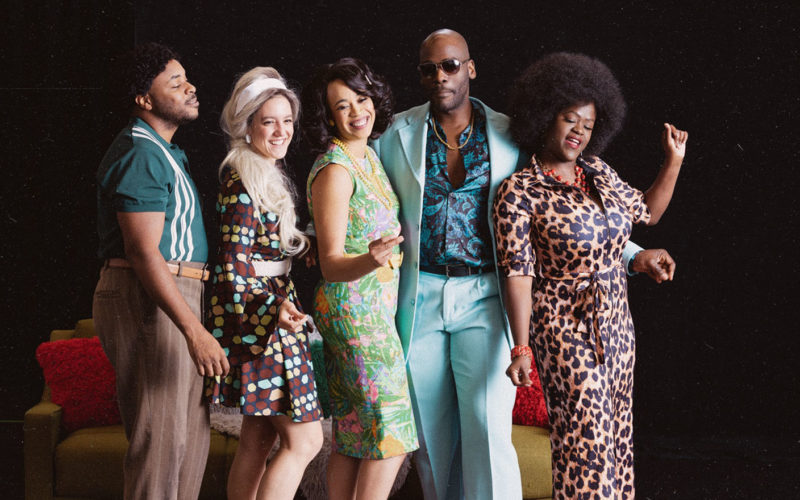April Wallace
awallace@nwaonline.com
In the course of the civil rights movement, there was one time and place that influenced all the rest — Detroit ‘67.
It’s also the title of a production opening at TheatreSquared, directed by Dexter J. Singleton, that references the riots the city experienced at the time.
“It’s about the transition of my neighborhood and my city … that eventually became a majority Black city with a Black mayor,” Singleton says. “A lot of people watched what happened in ‘67 and that became in some ways a blueprint for how the rest of the civil rights movement went.”
You may know Dexter Singleton’s work well by now. He’s on staff at TheatreSquared, where he is the main producer for the Arkansas New Play Festival. He also directed “Royale” and “The Elaborate Entrance of Chad Deity,” and he has a strong connection with this production in particular, since he was one of the first actors to play the role of Lank back when “Detroit ‘67” was brand new.
It led to an ongoing relationship with MacArthur Genius Fellow Dominique Morisseau, who wrote “Detroit ‘67” — which won the Edward M. Kennedy Prize for Drama — and the other two plays in its trilogy, “Skeleton Crew” and “Paradise Blue.” Morisseau was also from Detroit and interested in that period of time when Black Detroiters wanted to be leaders and own property, but those goals were clouded by the climate of the time, being smack dab in the middle of the civil rights movement and the wake of the Voting Rights Act of 1965.
“Black Americans were looking to achieve and be something more and really stake their place in their part of the American dream,” Singleton says. “This play is really about that.”
In Detroit ‘67, Lank (Tenisi Davis) and Chelle, played by Devereau Chumrau, return home in the wake of their father’s passing to turn the family’s basement into an after-hours joint. The siblings struggle over the family business and over the appearance of Caroline, a mysterious figure played by Jenna Krasowski, as the riots rage and Motown plays.
Chumrau describes Chelle as a bit of a negative Nancy at first, but a strong-willed woman who is the glue of the family. When the show begins, their father’s loss is still an open wound for her. At this moment, Chelle has lost her husband and her parents. The prospect of running a new business adds to her upended world.
The way that the ruckus outside mirrors the emotional chaos inside the family and its business is where the beauty begins, Chumrau says.
“There’s a lot of change going on outside with tanks and a lot of chaos, so that the best you can do is to keep your house, your heart, your home and your family safe,” she says. “That’s the center of where Chelle is.”
But she and her brother are very different. The outer world’s laws changing, however, inspiring Lank to do more. Chumrau loves that the play puts two very opposing Black perspectives next to each other. She had read “Paradise Blue” right before auditioning for the role of Chelle and found both plays full of mesmerizing writing, all very natural, true-to-life texts that just flow out of her, she says.
“I kept thinking … I see this in my sister, I see this in my mother, my auntie, my cousins and so many of the Black women who raised me,” Chumrau says. “What an opportunity it would be to give them that voice.”
Jenna Krasowski is a big fan of playwright Morisseau’s work, too. She was drawn to the character of Caroline because she loves those people who are survivors and a little harder around the edges, she says.
“To be a supporting character in a play like this means a lot,” Krasowski says. “I’m really grateful to be involved; supporting Black rights and stories is a really big deal.”
All three agree that the play resonates loud and clear in today’s world and that it will continue to in another 20 years, 50 years and beyond.
“But what I get out of the play is a message of hope, dreaming and love,” Krasowski says.
__
FAQ
‘Detroit ‘67’
WHEN — Through Nov. 6
WHERE — TheatreSquared, 477 W. Spring St. in Fayetteville
COST — $27-$57 in person; digital stream $25-$35
INFO — theatre2.org










